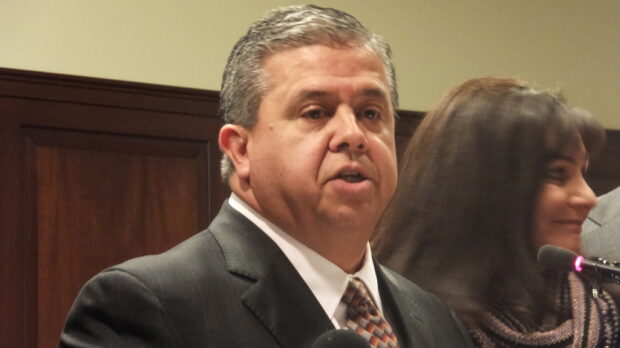Only a few years ago, Idaho was all in for the SAT.

Then-state superintendent Tom Luna saw college entrance exams as a vehicle — something that could nudge students toward college. He convinced the Legislature to start picking up the bills for every high school junior who wanted to take the SAT.
That offer still stands. But times are changing, and quickly. College entrance exams such as the SAT are falling out of favor nationally, and in Idaho.
On June 16, the State Board of Education ditched a major mandate. The state’s colleges and universities are no longer required to consider applicants’ test scores — although the schools have the option of requiring tests. This is a followup to a State Board decision to waive the college entrance exam requirement during the pandemic.
The June 16 State Board decision is almost — but not necessarily — a deathknell.
The colleges and universities could still require the exams for out-of-state applicants, for example. They could adopt a “test-optional” approach — allowing applicants to submit a score to bolster their case for admission — as opposed to a “test-blind” policy that ignores the scores entirely. There are plenty of possibilities, as State Board chief academic officer TJ Bliss said at last week’s board meeting.
And the State Board probably hasn’t had its last word.
Debbie Critchfield is planning to step down from the board in the future, to focus on her campaign for state superintendent, but last week, she said her board colleagues will have a longer testing conversation with college presidents and provosts.
“We want to remove barriers, but we also believe in standards,” she said.
What does the State Board decision mean? It varies.
- The University of Idaho has made no decisions for students applying for spring 2022 or beyond, spokeswoman Jodi Walker said Tuesday.
- Idaho State University’s waiver covers fall 2021 and spring 2022 applicants. A decision for fall 2022 and beyond will come “in the near future,” spokesman Stuart Summers said.
- Lewis-Clark State College will not require test scores from 2021-22 applicants, and will work on a long-term policy this fall, President Cynthia Pemberton said this week.
- Boise State University could have a long-term decision by late summer, spokesman Mike Sharp said.
But there are several compelling reasons why the schools might get out of the entrance exam business.
One, Bliss said last week, is raw competitive positioning. As Idaho colleges and universities struggle to reverse an 18-month enrollment slide from the pandemic, a testing requirement could put them at a disadvantage against test-optional or test-blind schools.
Another reason is more fundamental. The exams simply might not deliver what they promise: a measure of college readiness. “There’s a growing body of research suggesting that college entrance exam scores don’t predict success, and that GPA and other factors are more important.”
Educators have been debating the merits of college entrance exams for years, questioning whether the tests are biased against low-income students or students of color. But the coronavirus pandemic introduced a new dimension to the debate. With students in online school lockdown, and unable to sit in a school auditorium for a morning-long proctored exam, many colleges and universities ditched their exam requirements out of necessity.
For the same reason, the state suspended another test mandate during the pandemic. In 2020 and 2021, students weren’t required to take a college entrance exam in order to graduate from high school. This requirement is still in place for the high school class of 2022, but the State Board will take another look at it in August. Come January, the State Board might ask the Legislature to pass a rule rescinding the graduation requirement.
The graduation requirement, passed in 2007, was designed to boost Idaho’s historically low college go-on rates. The state put its money behind the idea in 2012 when it launched “SAT Day,” which allows high school juniors to take the college entrance exam during their regular school day, and at state expense. The cost comes to about $1 million a year.
But here are some questions for the State Board — and perhaps, for the 2022 Legislature.
If colleges and universities aren’t requiring applicants to take a college entrance exam, why should the state require high school students to take the exam? And why should taxpayers subsidize SAT Day for students who may or may not be college-bound?
Obviously, one decision affects the other. Ditch the high school graduation requirement, and the $1 million cost of SAT Day probably shrinks significantly. Students would likely sign up for SAT Day only if they’re applying to a college that requires it. Beyond that, there are only so many high school juniors who would take the SAT for fun — even if it’s free.
Each year, the state is pouring millions of dollars into a variety of programs designed to encourage high school graduates to continue their education: dual-credit courses, need-based scholarships, college and career advisers. The results have never been great, and they’re actually getting worse. Last fall, Idaho’s college “go-on rate” fell to just 38%.
Is SAT Day worth the investment? Does it make sense to make every high school student take a college placement exam?
A few years ago, these questions pretty much went unasked. Now, they’re germane.
Each week, Kevin Richert writes an analysis on education policy and education politics. Look for it every Thursday.
